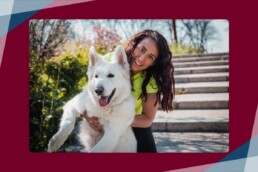The Legal Leash: Understanding Pet Owner Liability
As beloved members of our families, pets bring joy, companionship, and unconditional love into our lives. However, the joys of pet ownership come with responsibilities, including understanding and mitigating potential liabilities.
In this blog post, we’ll explore the legal aspects of pet ownership, including pet owner liability and ways to protect yourself and your furry companions.
The Legal Landscape of Pet Ownership
Understanding the legal landscape of pet ownership is crucial for every pet owner to navigate the complexities of pet-related liabilities and ensure the safety and well-being of their pets and the community at large.
1. Pet Owner Liability Laws
Pet owner liability laws vary from state to state and country to country, but they generally hold pet owners accountable for the actions of their animals. These laws typically cover a wide range of scenarios, including injuries caused by pets to people or other animals, as well as property damage resulting from pet-related incidents.
2. Strict Liability for Dog Bites
One of the most common sources of pet owner liability is dog bites. In many jurisdictions, dog owners are subject to strict liability for any injuries caused by their dogs, regardless of whether the owner was negligent or aware of the dog’s aggressive tendencies. This means that dog owners can be held responsible for damages resulting from a dog bite, regardless of whether the dog has a history of aggression.
3. Legal Precedents and Case Law
Legal precedents and case law play a significant role in shaping pet owner liability laws. Court rulings and legal interpretations of existing statutes can influence how liability is determined in pet-related incidents. For example, past court cases may establish standards of care for pet owners or clarify the extent of liability in specific situations, such as dog bites or property damage.
4. Importance of Understanding Local Regulations
Given the variability of pet owner liability laws, pet owners must familiarize themselves with the regulations and statutes governing pet ownership in their local area. This includes understanding leash laws, licensing requirements, and any breed-specific legislation that may apply to their pets. By staying informed about local regulations, pet owners can ensure compliance with the law and minimize their liability risk.
Types of Pet Owner Liability
As pet owners, it’s crucial to understand the various types of liability we may face with our furry companions. Here are some common types of pet owner liability.
Dog Bites
Dog bites are perhaps the most well-known form of pet owner liability. In many jurisdictions, dog owners are held strictly liable for any injuries caused by their dogs, regardless of the dog’s history or the owner’s knowledge of its behavior. So, if your dog bites someone, you may be held responsible for the resulting damages.
Property Damage
Pets can cause damage to property in various ways, such as scratching furniture, chewing belongings, or digging up gardens. As a pet owner, you may be liable for reimbursing the property owner for any damages caused by your pet.
Injuries to Other Animals
If your pet injures another animal, such as in a dog fight or altercation, you may be liable for the animal’s veterinary bills and any other associated costs.
Nuisance Behavior
Pets that engage in nuisance behavior, such as excessive barking or aggressive behavior toward neighbors, may result in liability for the pet owner. Pet owners may sometimes be held responsible for addressing and mitigating their pets’ nuisance behavior.
Trespassing
Pets that roam onto neighboring properties without permission can also result in liability for the pet owner. If your pet causes damage or injury while trespassing on someone else’s property, you may be held responsible for the resulting damages.
Mitigating Pet Owner Liability
As much as we adore our furry companions, we must recognize that owning a pet comes with responsibility and potential liability. From minor mishaps to more serious incidents, pet owners must proactively mitigate risks to protect their beloved pets and others around them.
Here are some key tips for responsible pet ownership to reduce liability:
Training and Socialization
Proper training and socialization are paramount for any pet, whether a dog, cat, or exotic animal. Teaching your pet basic commands and exposing it to various environments and situations from a young age can minimize the likelihood of aggressive behavior or accidents.
Leash and Containment
When in public spaces, always keep your dog on a leash unless in designated off-leash areas. This helps prevent your pet from running off, chasing other animals, or approaching strangers without warning. Additionally, ensure that your backyard or living space is securely fenced to prevent escapes and potential confrontations with neighbors or passersby.
Supervision
Never leave your pet unsupervised, especially around children or unfamiliar individuals. Even the most well-behaved animals can react unexpectedly in certain situations. Supervision allows you to intervene quickly if necessary and prevents accidents or conflicts from escalating.
Regular Veterinary Care
Schedule regular check-ups with your veterinarian to ensure your pet remains healthy and up-to-date on vaccinations. This promotes your pet’s well-being and demonstrates responsible ownership in the event of any legal disputes. Keep records of all veterinary visits and medical treatments for documentation purposes.
Understanding Local Laws
Familiarize yourself with local ordinances and regulations concerning pet ownership in your area. This includes leash laws, licensing requirements, and aggressive or nuisance behavior rules. Compliance with these laws avoids potential fines and demonstrates your commitment to being a responsible pet owner.
Responsible Breeding Practices
If you’re a breeder, ensure that you adhere to ethical breeding practices and prioritize the health and well-being of the animals. Irresponsible breeding can result in offspring with genetic disorders or behavioral issues, increasing the likelihood of liability for future owners.
Communication with Neighbors
Maintain open communication with your neighbors, especially if you live near others. Inform them about your pet and address any concerns they may have regarding noise, waste disposal, or safety. Building positive relationships with neighbors fosters community and reduces the likelihood of disputes.
Pet Behavior Evaluation
If you have concerns about your pet’s behavior or temperament, seek professional guidance from a certified animal behaviorist or trainer. Early intervention and training can often prevent future incidents and minimize liability risks.
Key Takeaways
Pet owner liability is an essential aspect of pet ownership that all individuals should be aware of. By understanding the legal responsibilities associated with pet ownership and taking proactive measures to mitigate risk, pet owners can help protect themselves, their pets, and others from harm.
Whether through proper training, supervision, or investing in pet insurance, responsible pet ownership is essential for ensuring the safety and well-being of all.
Related Articles
How Can Cyber Liability Insurance Help Me?
Key Takeaways Cyber liability insurance helps businesses recover from cyberattacks, covering the costs of data breaches, ransomware attacks, and business…
The Surprising Benefits of General Liability Insurance
Running a business comes with a myriad of responsibilities, challenges, and, most importantly, risks. Every entrepreneur hopes for success, but unforeseen…


